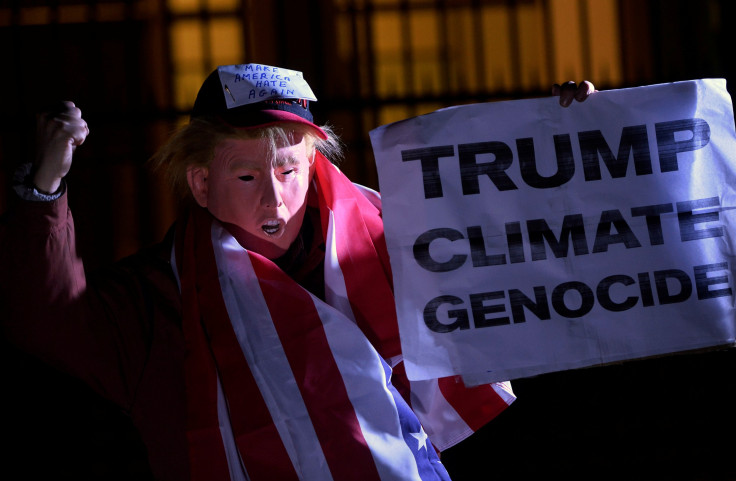Trump Administration Takes Aim At Climate Change Forecasting From Federal Agencies

While many Trump administration initiatives are seemingly transparent — escalating Mexican tariffs to force assistance with immigration at America’s southern border — the White House appears to be taking even bolder steps to attack climate science.
In January, following a heavy snowstorm, Trump took to social media to tweet, “Wouldn’t be bad to have a little of that good old fashioned Global Warming right now!” He also pulled the U.S. out of the Paris Climate accord and has refused to sign a communique to protect the rapidly thawing Arctic region unless the document makes no reference to climate change.
We’re already living with the increased threat of wildfires, floods and hurricanes due to climate change. Now, President Trump wants to rewrite scientific facts and cover up this threat. Very dangerous. https://t.co/kbtS7HLf78
— Sen Dianne Feinstein (@SenFeinstein) May 28, 2019
These are some of the administration’s more obvious moves to play down the scientific community’s concern that left unchecked greenhouse gas emissions will warm the planet by as much as eight degrees by the end of the century.
It’s that long-term outlook the president is now seeking to change. Parts of the federal government will no longer report on the future effects of a rapidly warming planet or present a picture of the effects it may cause by the end of the century if the global economy maintains its use of carbon dioxide-emitting fossil fuels.
James Reilly, a former astronaut and geologist, and recent White House-appointee to the United States Geological Survey, has ordered environmental assessments produced by the office only use computer-generated models that project climate change through 2040, rather than the end of the century as they previously have.
#climatechange poses a severe threat to planet #Earth . Interest groups in the US are in constant denial that humans are primarily responsible for these aberrations. pic.twitter.com/eoPE2LBMb8
— Synergia Insights (@SynergiaImpact) May 30, 2019
Scientists have said this may give a misleading picture of the potential effects, in that climate change through 2050 is rather modest, in comparison to what has been predicted after 2050, depending on whether carbon dioxide emissions increase or decrease. The administration’s intent here is to reshape the National Climate Assessment, an interagency report produced roughly every four years since 2000. The next assessment, in which work already has begun, is due in 2021 or 2022.
Philip B. Duffy, the president of the Woods Hole Research Center, and a National Academy of Sciences panelist that reviewed the government’s most recent climate assessment told the New York Times, “What we have here is a pretty blatant attempt to politicize the science — to push the science in a direction that’s consistent with their politics.”
He added, “It reminds me of the Soviet Union.”
One of the main reasons why we get flooded with climate science denial and why greenhouse gas emissions keep rising: Oil And Gas Giants Spend Millions Lobbying To Block Climate Change Policies. A billion $ every five years from these five companies alone! https://t.co/0MfKFCLm4h pic.twitter.com/o0LBWEcYD3
— Stefan Rahmstorf (@rahmstorf) May 31, 2019
© Copyright IBTimes 2024. All rights reserved.





















